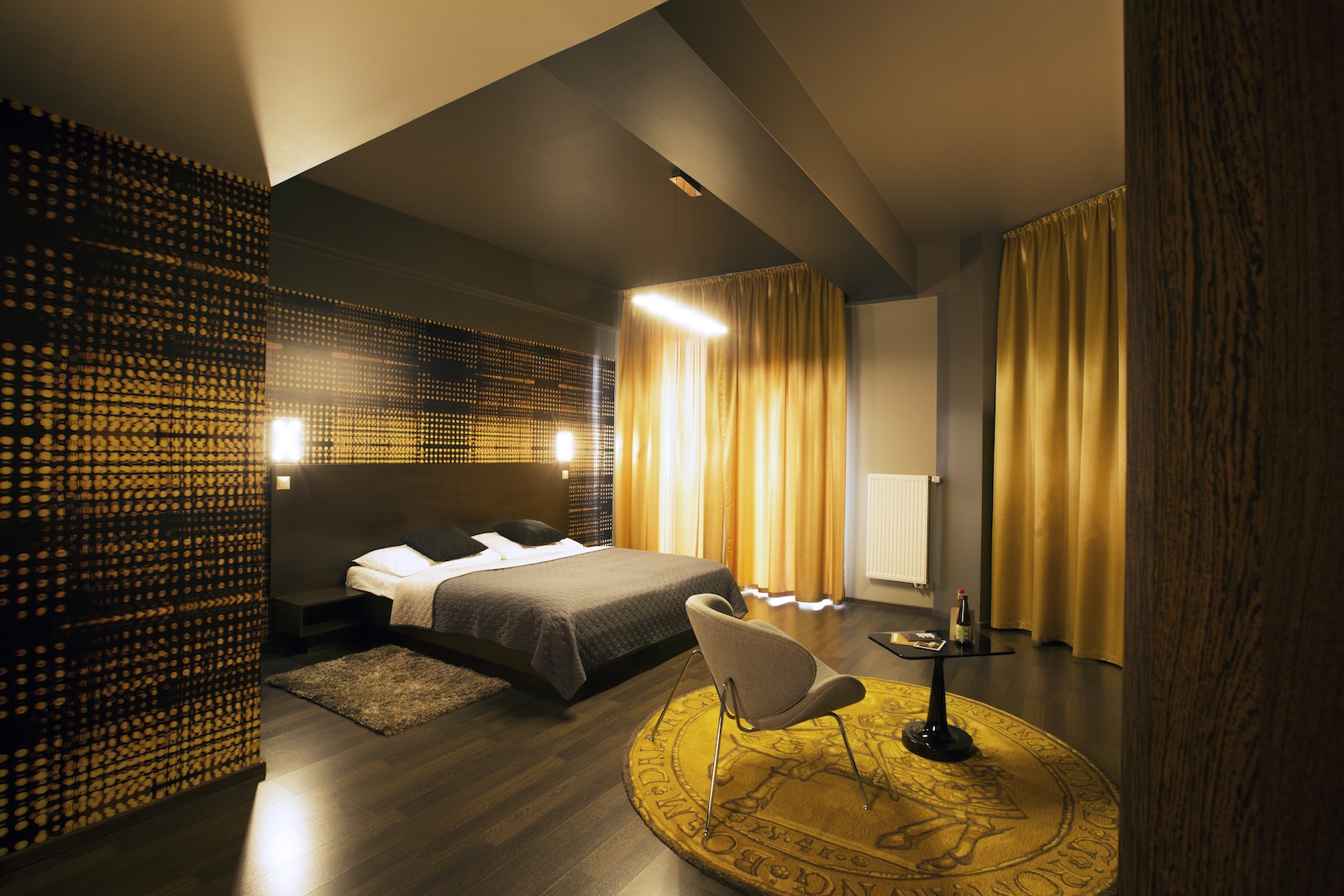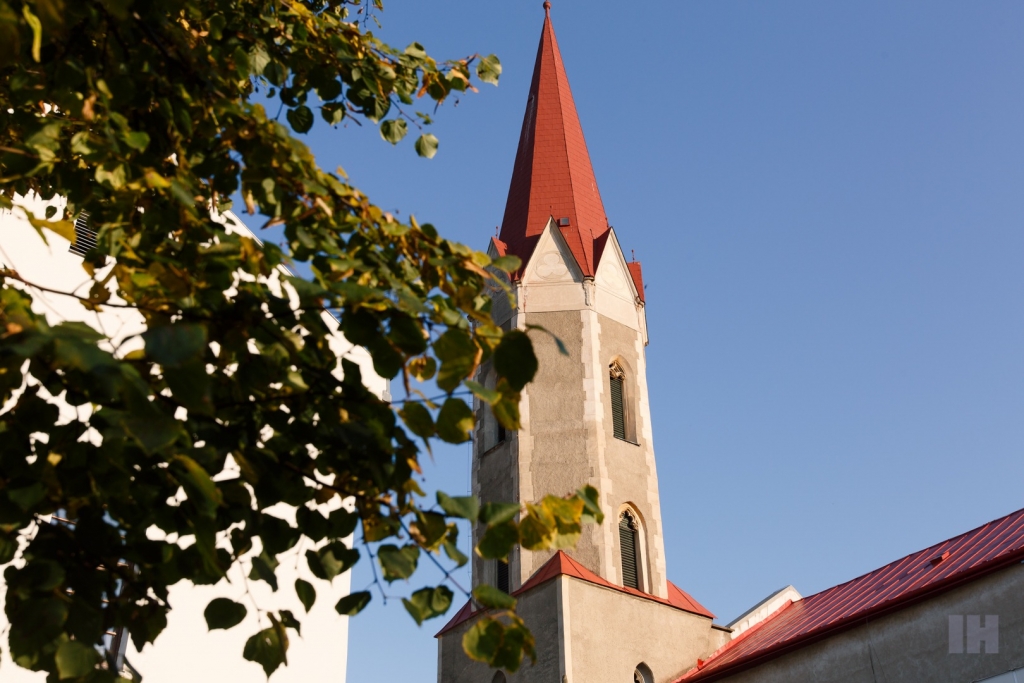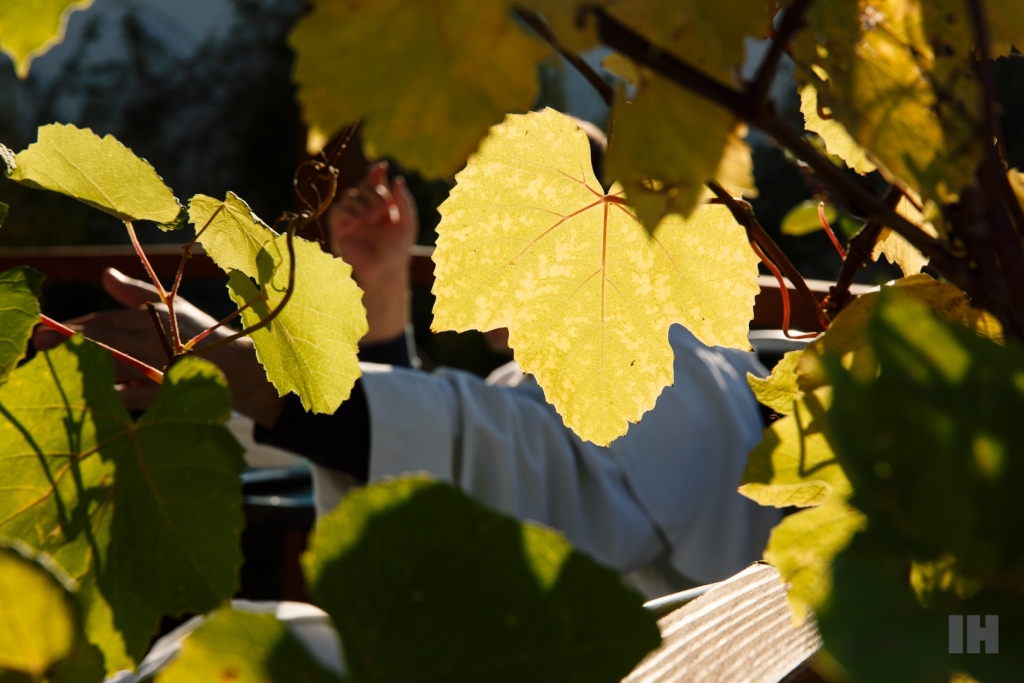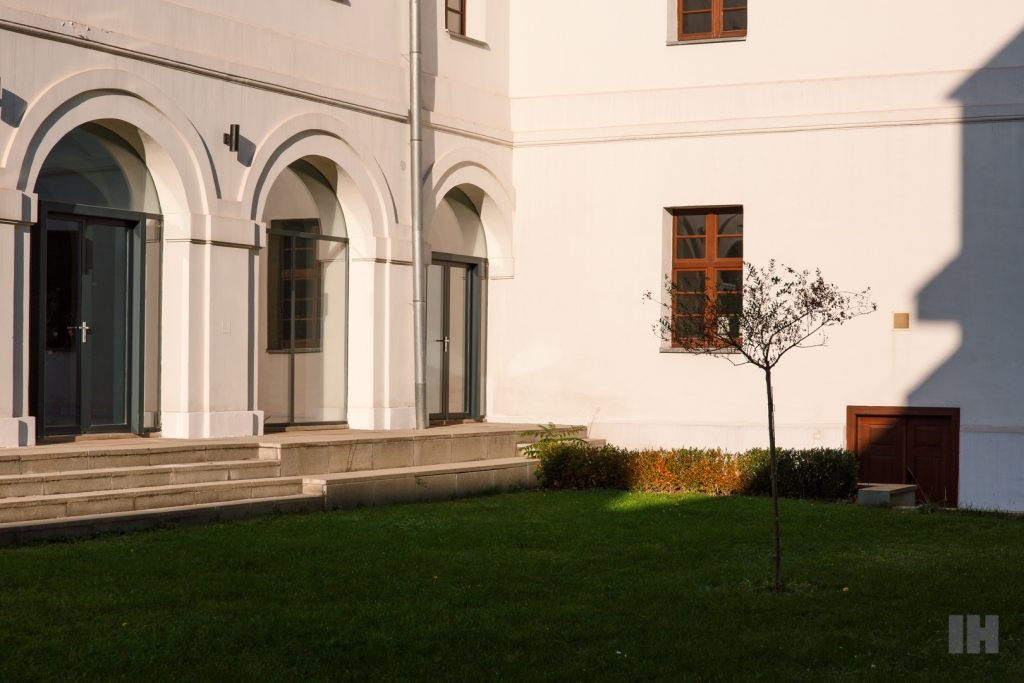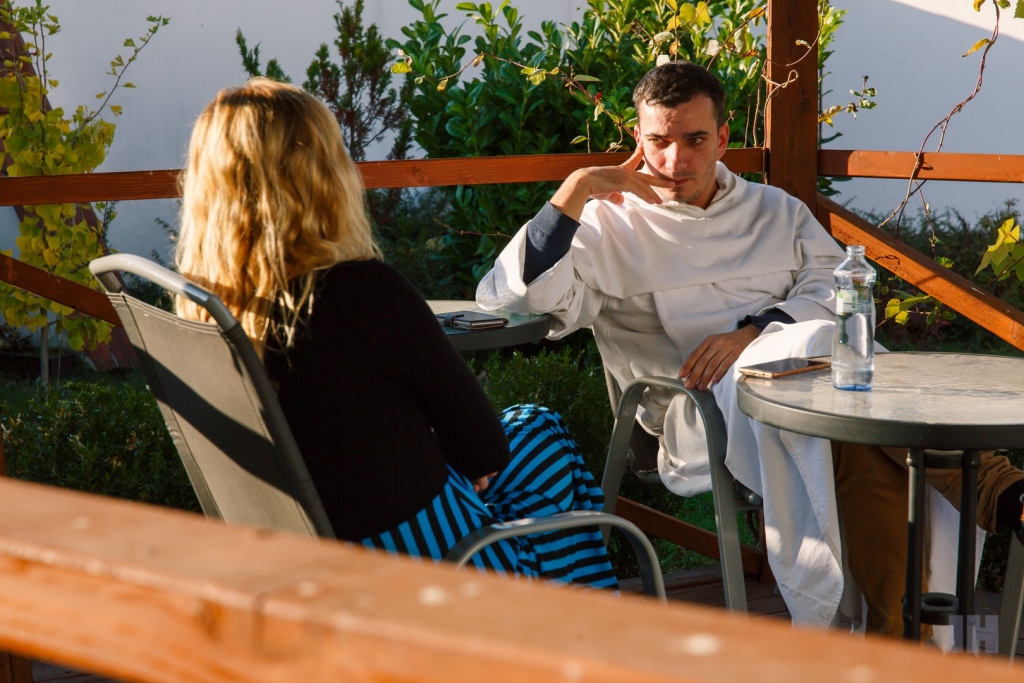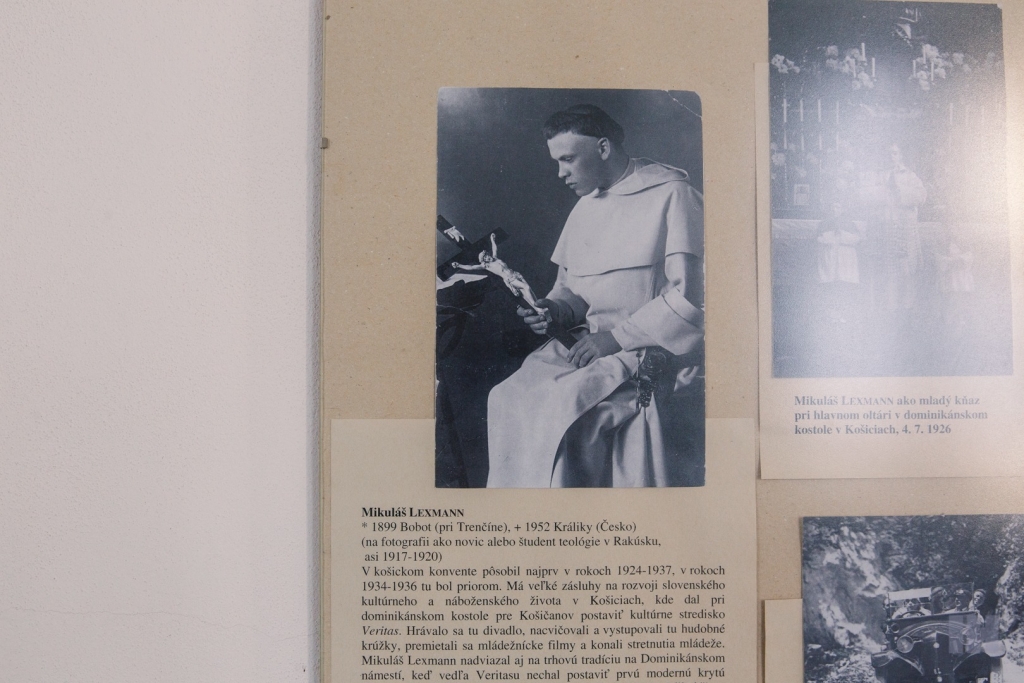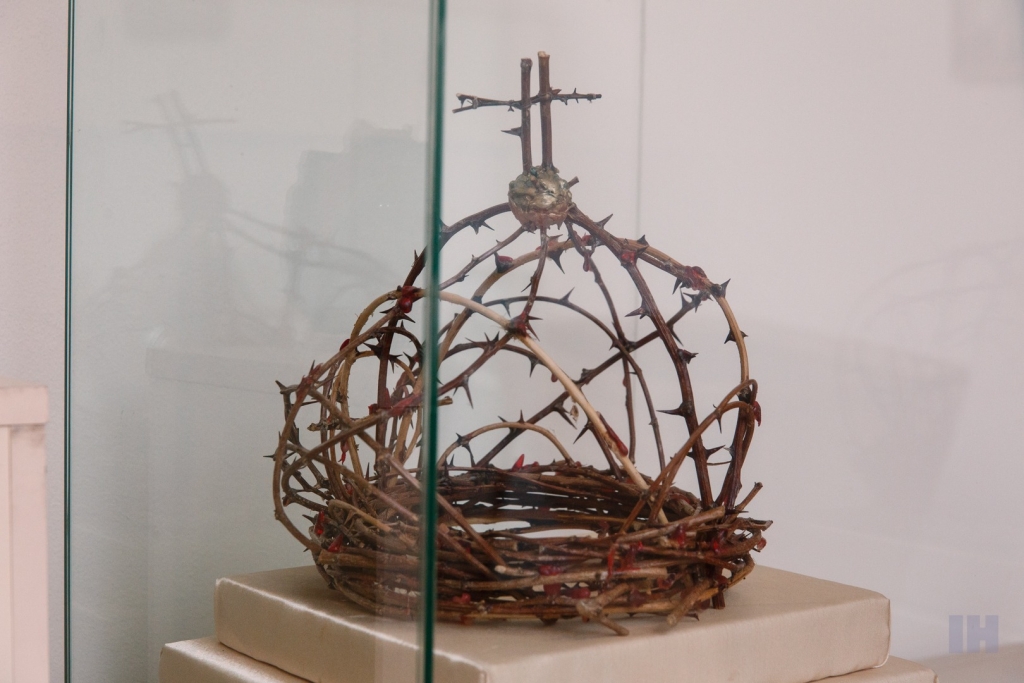The Dominicans work on culture in Eastern Slovakia. Brother Vavrinec about the cloister and their cultural centre DKC Veritas
The first Dominican friars came to Košice back in the 13th century. The beggars’ order was founded by St Dominic so as to show the world a new religious order with no possessions which aimed to search the truth and redemption. Today, fourteen Dominicans follow this tradition in Košice, Slovakia, living under one roof of the highest church tower in the town, reaching up to 68 metres. Learn more about life in fraternity, life-long commitment and modesty of its representatives through the words of the deacon, brother Vavrinec, the administrator of DKC Veritas:
The personal experience stays forever
Even though he takes care of the cultural events’ organization in the centre of the Dominican Order (DKC Veritas), Radoslav Mitro (brother Vavrinec) had no suspicion where his future steps would lead him when he was in secondary school. A few years ago, he became a deacon in Košice after finishing his studies in theology in Zvolen. On this occasion, he pledged to follow the teachings of the fraternity during his life. All of that started with a school assignment: “I wanted to capture a personal experience in the Dominican cloister so I asked to spend a few days with the Dominicans. That has left a huge mark on me as an individual – one cannot logically explain why some people decide to live in a cloister. This fraternity is more than 800 years old and a particular affinity towards this kind of life arises after being here for a while. A person becomes affiliated with it, honours it. We are no different from others, we have our own problems and arguments with each other. Yet a deeper sense for existence keeps us at this place. To make a life-long promise is an ability to choose a responsible commitment.”
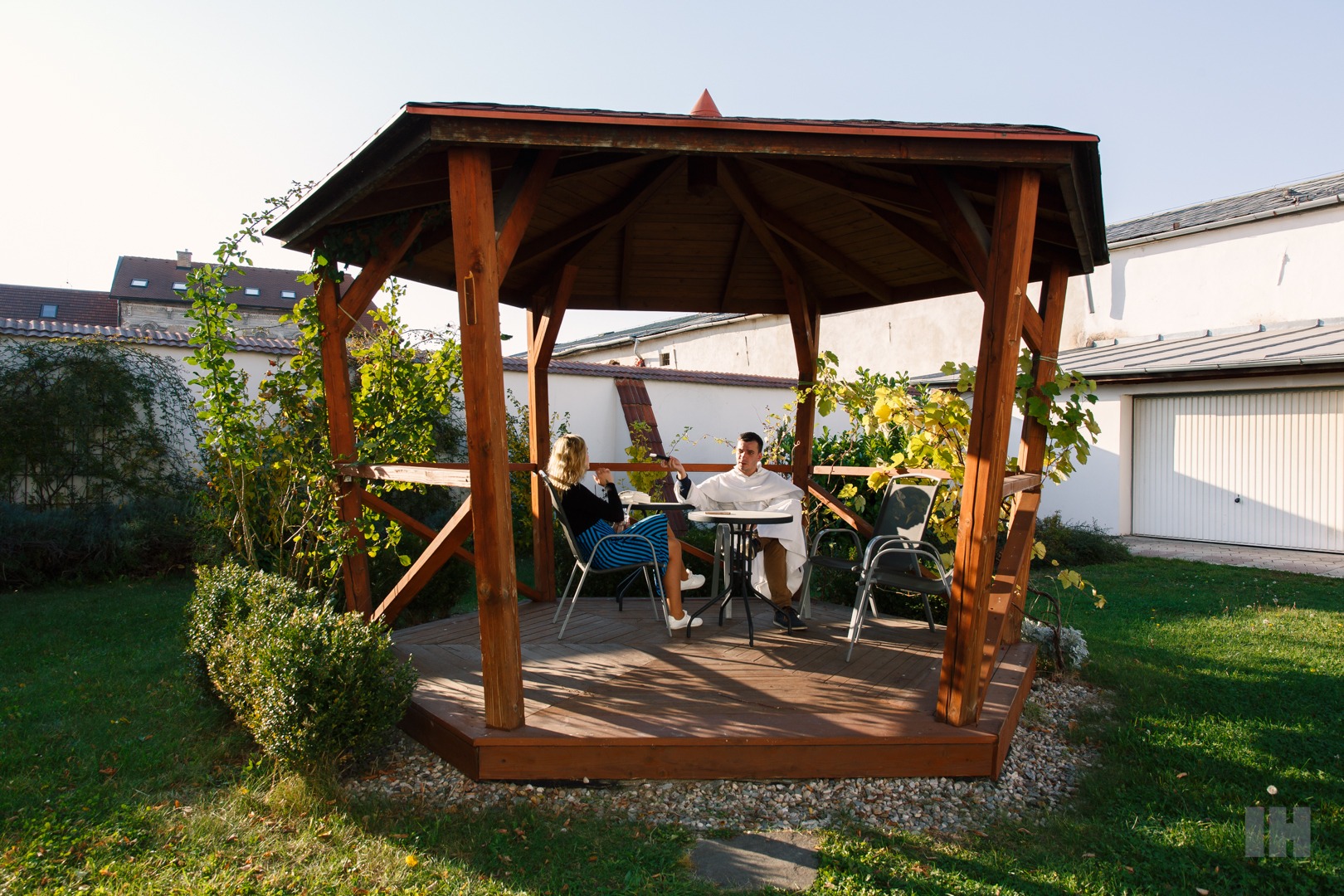
What are the Dominicans like?
The purpose of the fraternity is to devote itself to the intellectual way of living, later transformed into sermons. It is no surprise that the Dominicans are also called “The Order of Preachers”. There even exists a tradition which says that the pope’s theologist should be in fact a Dominican. Many of those who are based in Košice teach at secondary schools and universities to help young students find their way. A typical day of the brothers involves morning and evening masses, praying and reading – brother Vavrinec also works as a “manager” of DKC Veritas: “I take care of the café and I help to organize cultural events we held here. This job requires some administrative tasks and technical maintenance, too – I sometimes spend hours working with cables to deliver sounds during a performance. As a deacon, I regularly try to preach at masses, officiate weddings, christenings or funerals.”
Read also: Top 7 sacred & divine places in Košice
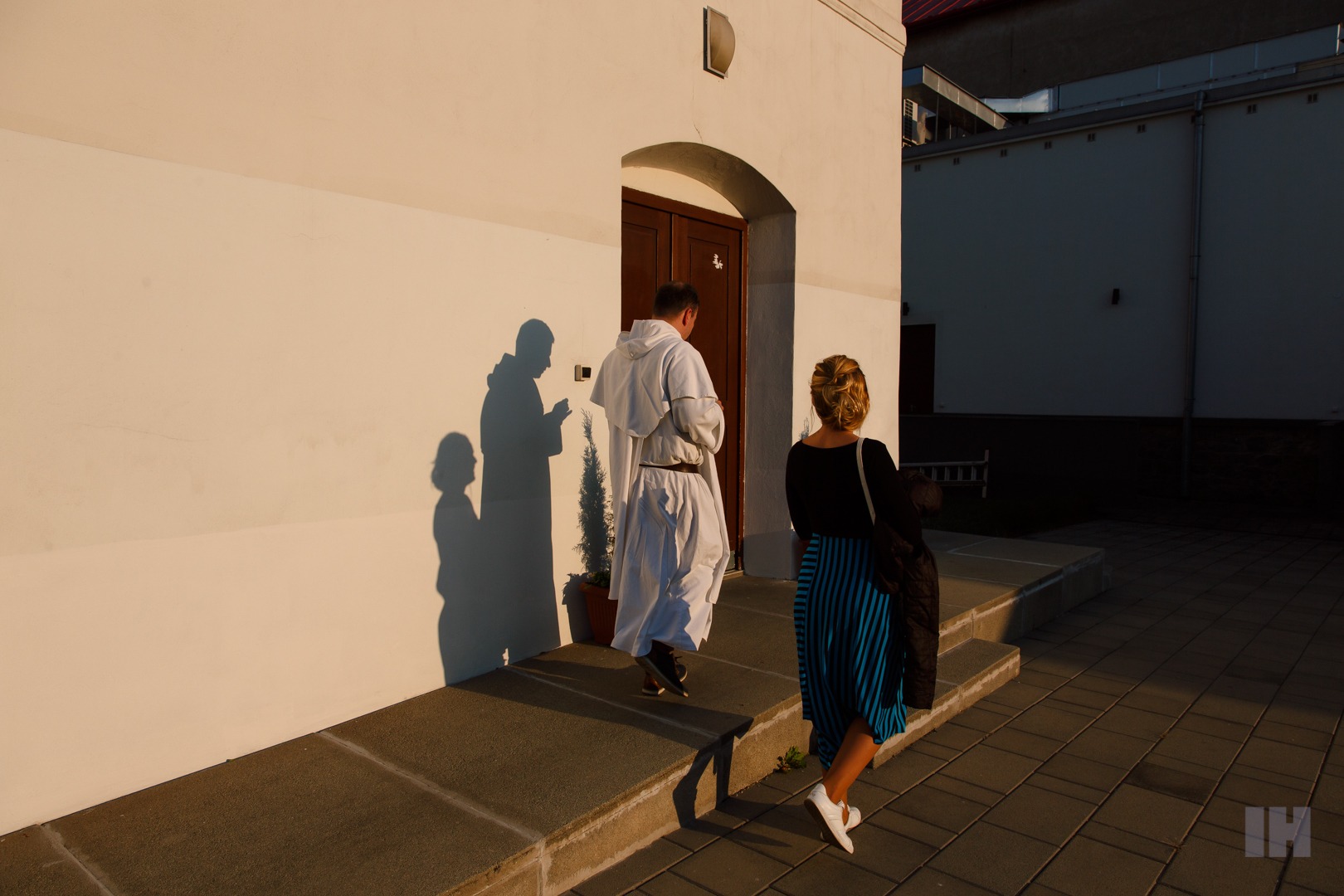
The birthplace of bands and performers
Mikuláš Jozef Lexmann was the one who built a cultural centre on the premises of Dominican cloister back in the ’30s. He heavily influenced cultural activity in the city – the first cinema in Košice was established right here. Until this day, Lexmann is considered an extraordinary personality of the Catholic Church in the country also for saving the lives of the Holocaust. He died while being intervened in a camp in Králiky, Slovakia. Nowadays, Lexmann remains a crucial martyr icon in the history of the city: “Mikuláš Lexmann wanted to spread culture in Košice and we follow his example. Cinema Dukla operated here in the ’50s and a famous ciné club Cinefil was founded here after the year 2000. Its founders now work in one of the most recognizable places of Košice – Cinema Úsmev. As for the musical artists, numerous bands and performers started playing here, such as Puding pani Elvisovej or Marián Čekovský who added piano music to silent movies. Today, we mainly cooperate with dance and art schools like the conservatory at Timonova St. You can also join some travelling lectures or art exhibitions. It might seem strange that the Dominican fraternity contributes to the cultural production in the city, but we want to pursue the message of Mikuláš Lexmann,” explains brother Vavrinec.
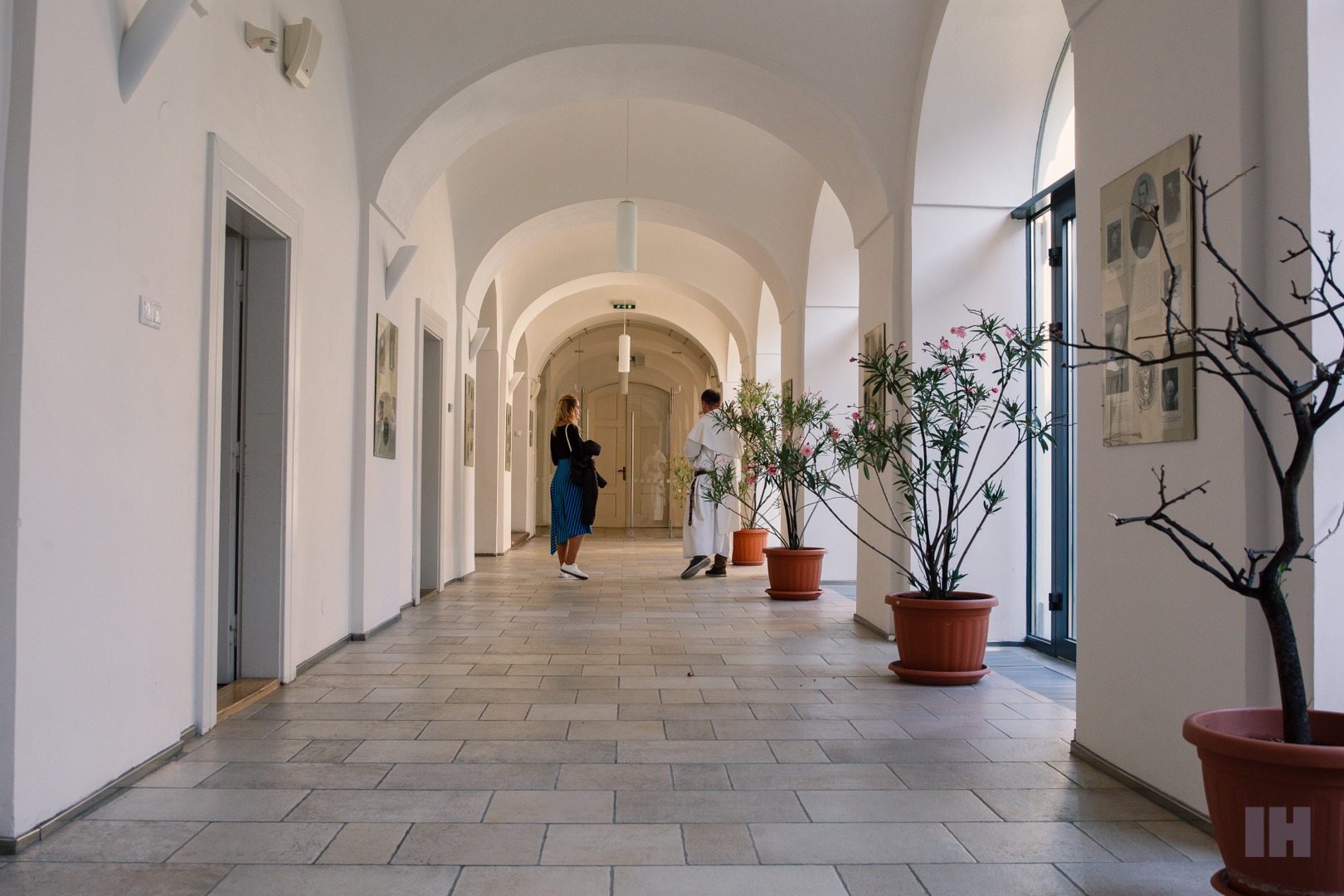
“There are moments when things don’t make sense and then I take a closer look at my habit. Only the fact that I am wearing it keeps me going. I see it as a sign of someone who wants me to have it, to continue doing what I do, the reason why I decided to pledge my life-long commitment. We, Dominicans, want to touch people’s hearts through the truth. That’s what matters to me.”
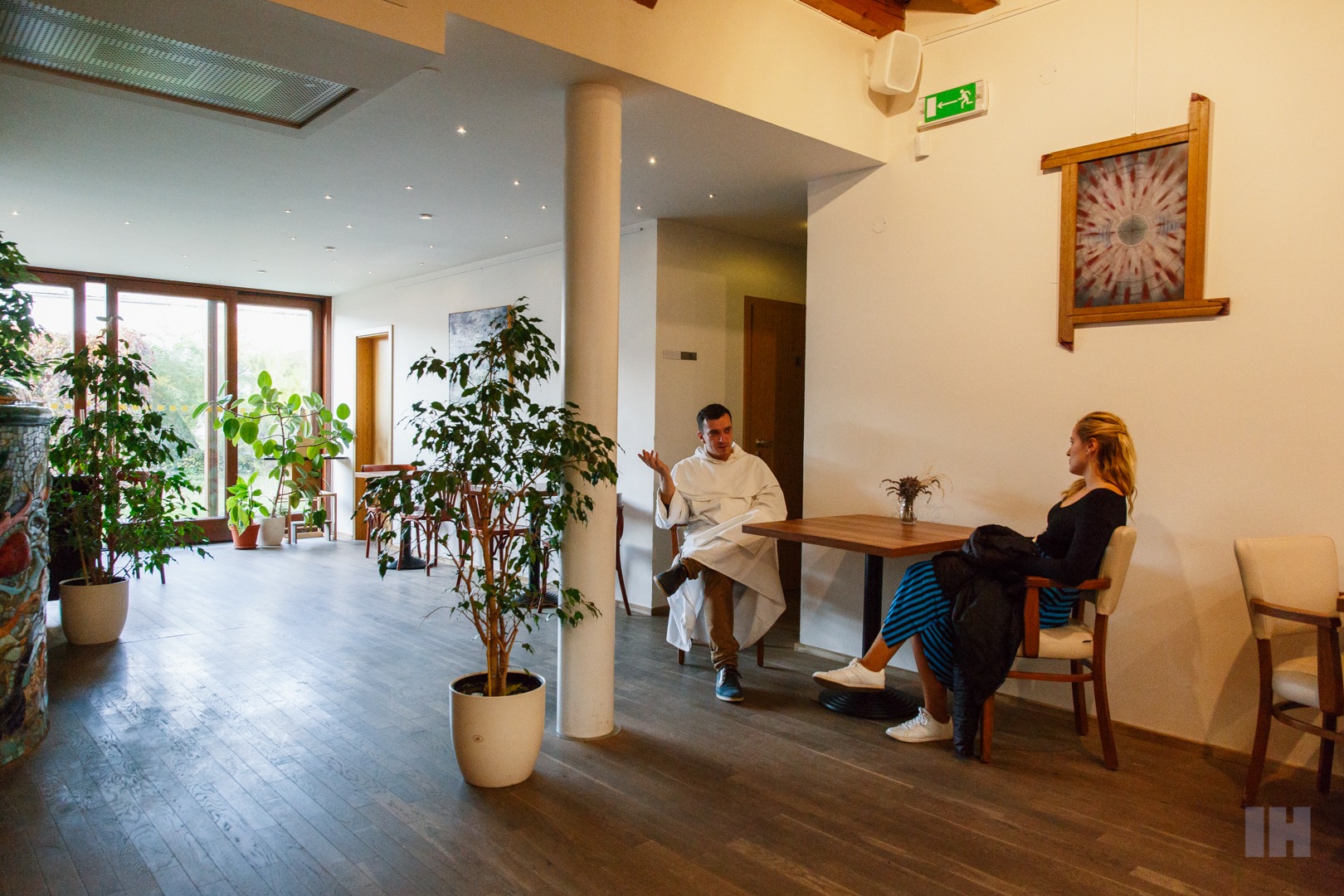
Modest life
A fraternity of beggars found by St Dominic is no myth. Brothers who choose to live together in this way get a salary which goes to one account and their expenses are taken from there. Huge premises of the cloister are being rented to lawyers’ offices. These, in turn, gain a unique space inside the very core of the historical centre of the city and, at the same time, help to donate the cultural centre Veritas. Brothers can buy some personal things from a low monthly allowance – their life is, however, lead to prosper from modesty and spiritual fulfilment.
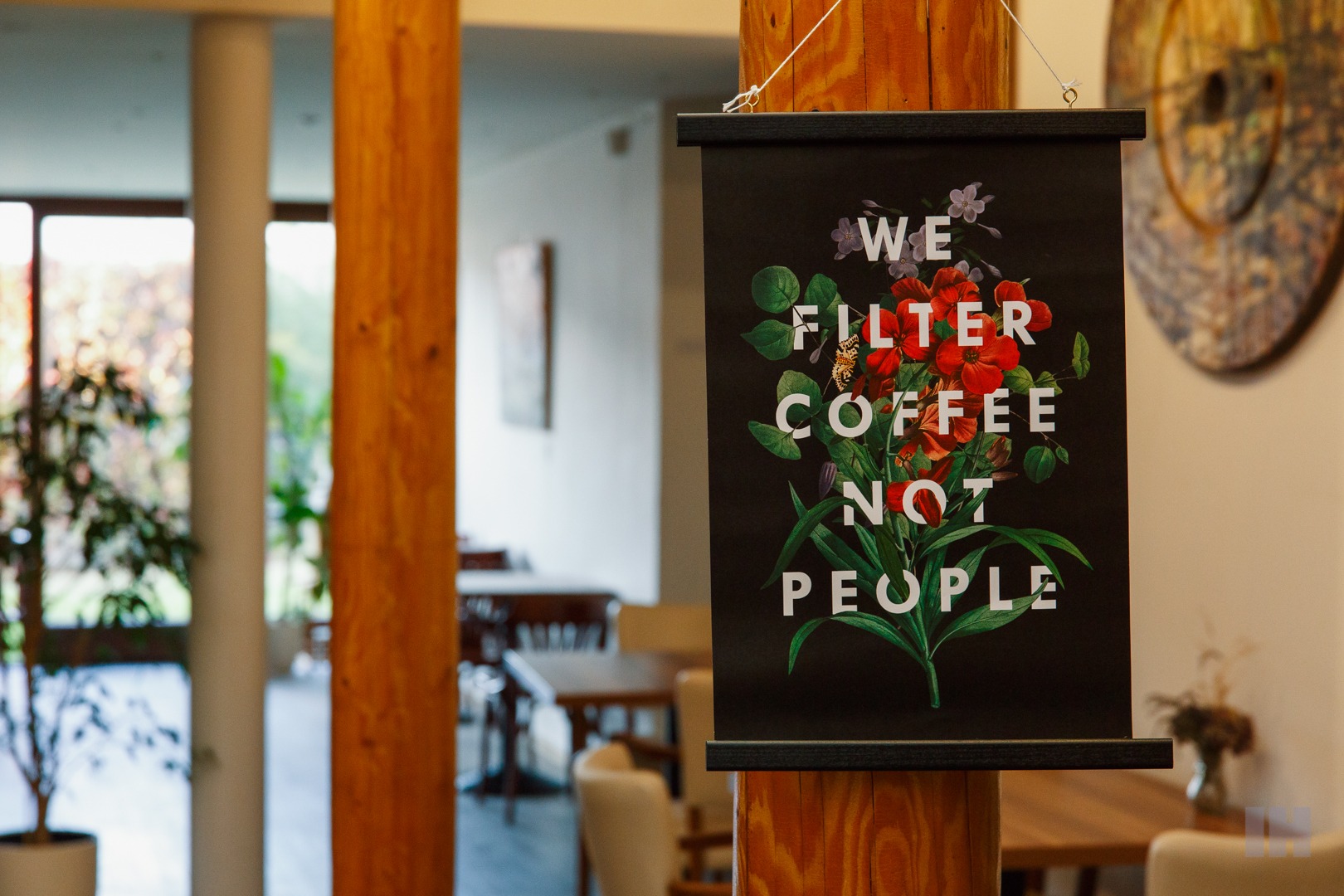
The Dominicans are working hard to contribute to the cultural side of the city. Visit Košice and also DKC Veritas to learn more about secrets corridors of the cloister with a 68-metres high tower. Book your design room by The Invisible Hotel – Golden Treasure – situated just a few minutes from the Dominican cultural centre.
